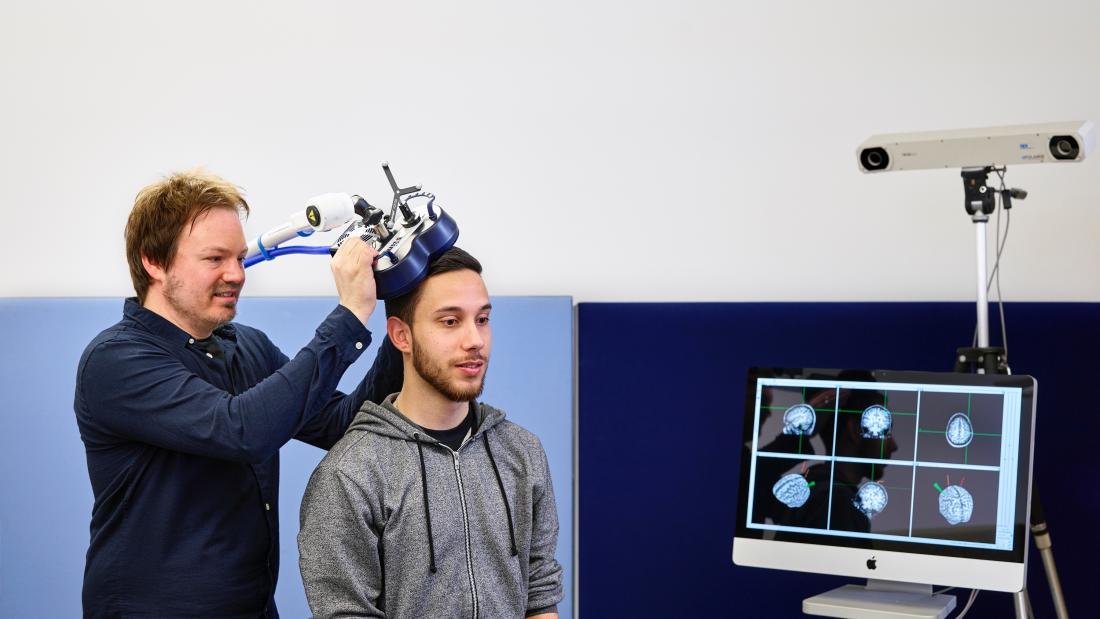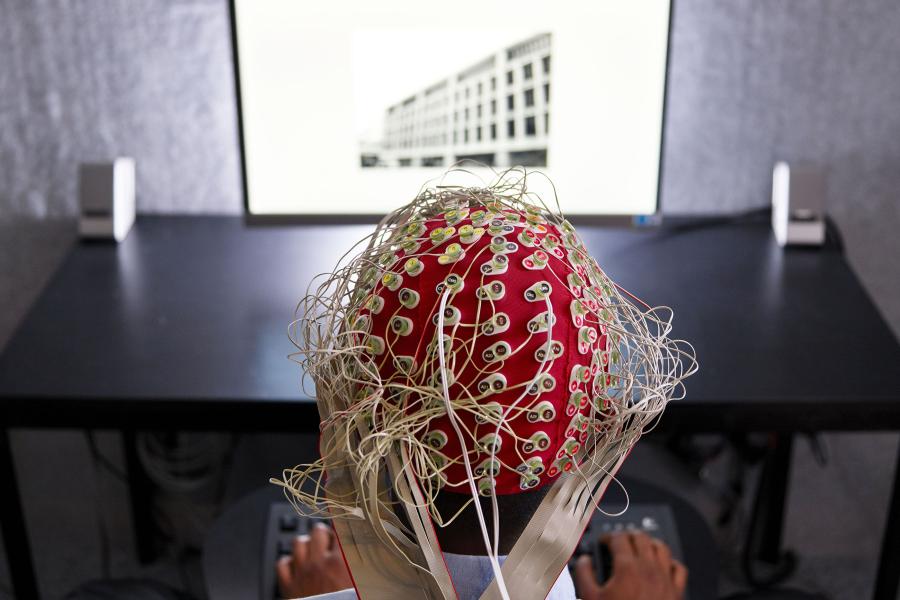About This Course
Our MSc Applied Behaviour Analysis (ABA) is aimed at those wishing to specialise in practical applications of behaviour analysis including positive behaviour support and behaviour analysis in education. The course is designed to develop advanced theoretical and practical knowledge of the basic principles of behaviour analysis and the application of the principles within clinical and research settings.
Behaviour analysts work in a variety of multi-disciplinary settings alongside teachers, psychologists, nurses and other professionals to help individuals and organisations meet their goals and improve quality of life.
Behaviour analysis in the UK is overseen by the UK Society for Behaviour Analysis (UK-SBA.) The UK-SBA’s register of professionals is accredited under the Professional Standards Authority’s Accredited Register programme. Behaviour analysis is an evolving practice and at Bangor we emphasise a values-led and person-centred approach. We endorse and adhere to the UK-SBA practice values and Code of Ethical and Professional Conduct.
Bangor University’s MSc in ABA fulfils the coursework requirements for eligibility apply to become certified behaviour analysts.
Behaviour analysis in the UK is undergoing a positive change: the certification of professionals is transitioning from the Behavior Analyst Certification Board (BACB) to the UK-SBA. Both qualifications require candidates to complete post-graduate coursework, professional supervision, and pass a qualifying exam. The BACB will continue to certify UK applicants as Board Certified Behavior Analysts (BCBA) only until the 31 December 2025. After 1 January 2026, UK candidates will apply to become UKBA(cert) from the UK-SBA. Currently, all members of the UK-SBA who are BCBAs are eligible to become UKBA(cert).
Information for Candidates who wish to become certified by the BACB:
The Association for Behavior Analysis International has verified the MSc in ABA at Bangor University toward the coursework requirements for eligibility to take the Board Certified Behavior Analyst® or Board Certified Assistant Behavior Analyst® examination. Applicants will need to meet additional eligibility requirements including BACB supervision and demonstrate they reside in an authorised country before they can be deemed eligible to take the examination. In the UK, candidates must pass the qualifying exam by 31 December 2025.
Information for Candidates who wish to become certified by the UK-SBA:
The MSc ABA course at Bangor University meets the eligibility requirements for candidates to take the UKBA(cert) examination after 1 January 2026. Candidates will also be required to complete the UK-SBA Supervision and Competence Standards and pass a qualifying exam.
Students can exit the programme after achieving either a PG Certificate (60 credits) or PG Diploma (120 credits) if they don’t wish to undertake the full MSc. The full course leads to a Master’s degree, but it is designed to be flexible to meet the differing needs of our students. At Bangor University, the full MSc ABA is the only pathway offered for 2023 entry that will qualify a candidate to sit the BACB exam. Please contact us for further details.
Full-time: One year; Two years for those doing the practicum.
Full-time students take two modules each term and attend seminars on Mondays and Tuesdays.
Part-time: Two years.
Part-time students take one module at a time, and in the first year attend seminars on Mondays.
Please note: The taught element of the course runs from September-July. We expect that students will spend a full day a week engaged with each module. The workload is demanding, and the assessment periods for the full-time course can be onerous. If you have significant work or caregiving commitments, we strongly recommend that you take the course part-time over two years. It takes at least two years to earn the supervision hours towards certification and taking the coursework part-time will not delay your progress towards certification.
The course has been designed with flexible study in mind. Available study options are: fully remote learning, or a blend of independent and face-to-face learning.
During each week of the course, we will provide pre-recorded lectures and guided learning for students to access in their own time. There will also be two options for 90 minutes of live seminars per module each week: One seminar will be offered face-to-face at Bangor University during the day; A second, live, seminar will be conducted online from 18:00-19:30 UK time.
The course is designed to be flexible; students may come to Bangor and interact with their peers and lecturers in person. However, if for any reason a student cannot attend live seminars during the day, we welcome you via our remote platform in the evening.
Technical requirements for remote learning: Please note that attendance in seminars is mandatory. If you choose to attend from a distance, you MUST have access to a reliable internet connection and a device from which to attend seminars. We will expect you to turn your on cameras and participate during remote seminars. At Bangor University, we prioritise the conversations we have with our students. We feel strongly that relationships are central to the values-led practice of behaviour analysis and that the conversations and relationships that develop between students and lecturing staff can be pivotal in the development of an ethical practice of behaviour analysis.
Students may need to travel to Bangor to register in September, but all seminars and assessments may be taken from a distance. In 2023, distance learning is only available to students who are resident in the UK.
Most of our students receive the supervision element of their training as part of paid employment independent of the university. However, we do offer a practicum for those who wish to complete their practical training with the university. Practicum will run over two academic years.
Students will complete their coursework on a part-time basis and complete supervised practicum placements in educational and other settings in which behaviour analysis and positive behavioural support is used. During this time the student will have the opportunity to learn and demonstrate competencies outlined in the UK-SBA Competence Framework.
There are two practicum routes. First, students who are working with partner organisations across the UK may be eligible. These students will complete their course work while working and receiving onsite supervision from UKBA(certs) in their organisation. They will also receive supervision from UKBA(certs) from Bangor University. For the second, students based in North Wales will work in educational settings in the surrounding area. Students in these settings will gain the practical skills and knowledge required to design and implement behaviour-analytic interventions with a range of children. They will receive supervision from UKBA(certs) based in these settings and/ or university-based UKBA(certs). Instead of a thesis, practicum students will submit a portfolio. Students who have been accepted to the MSc in ABA will be invited to apply in writing at the beginning of their course, and the application process will include interviews and written statements. Places will be limited and awarded on a competitive basis.
Which certification do we recommend?
The BCBA and UKBA(cert) qualifications each have different supervision standards. At Bangor University, we recommend that students beginning in 2023 take their supervision using the UK-SBA Supervision and Competence Standards. The UK-SBA standards reflect the values and practice standards that are relevant to practice in the UK. Students who begin their studies in autumn 2023 can possibly complete the supervision required by the BACB and pass the exam before 31/12/25, however, the deadlines are very short. Please contact us for more details.
Course Content
What will you study on this course?
The course consists of two parts. Part One comprises taught modules designed around the BACB Task List. The first four modules introduce the basic theory and practice of the science and the second four offer more detailed analysis of both applied and research procedures.
On successful completion of Part One, you will proceed to Part Two - a clinical research study, planned and conducted in collaboration with your BCBA-qualified research supervisor.
The Association for Behavior Analysis International has verified the following course toward the coursework requirements for eligibility to take the Board Certified Behavior Analyst® or Board Certified Assistant Behavior Analyst® examination.
Teaching, Learning and Assessment
Teaching is done through a combination of taught workshops, seminars, specialised computer-based instructional packages and practical ’hands-on’ research experience. We aim to provide a high quality teaching and learning environment that is intellectually stimulating and that uses the principles of behaviour analysis. This requires innovative course content and instructional procedures, measurement of learning, flexible communication among students and staff, and a friendly and supportive environment. Assessment methods include written examinations, oral presentations, case reports, essays, and a research thesis.
Modules for the current academic year
Module listings are for guide purposes only and are subject to change. Find out what our students are currently studying on the Applied Behaviour Analysis MSc Modules page.
Course content is for guidance purposes only and may be subject to change.
Entry Requirements
You should have a single or joint honours first degree in Psychology or a related field with at least a 2.2. Relevant work experience is welcomed and mature candidates with at least 3 years relevant experience who are not graduates may also gain entry to the diploma level of the course and will be considered on a case by case basis. Candidates may apply to have some coursework recognised from another institution, but preference will be given to candidates who wish to take all of their coursework at Bangor. We may ask candidates to interview for a place on the course.
International students will be given individual consideration, but you must be able to demonstrate English language proficiency equivalent to an IELTS score of 6.5 (with no element below 6.0) and you will be expected to demonstrate that you have a suitable academic background for the programme.
Please note: Additional costs may be charged for an Enhanced DBS check (approx. £65).
Careers
This BCAB recognised MSc is a highly relevant qualification for those interested in pursuing a career with special educational or developmental needs in a wide range of settings.




